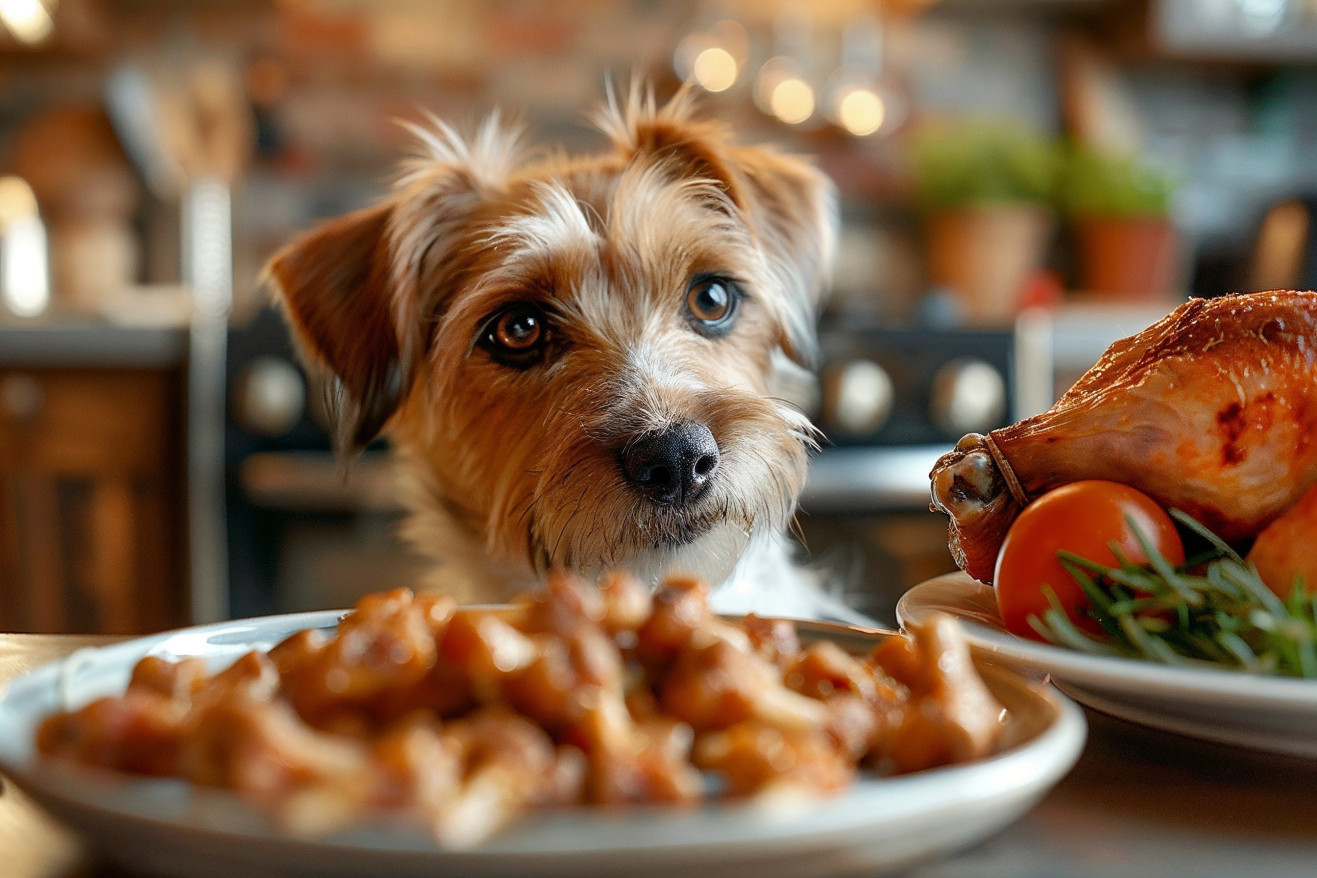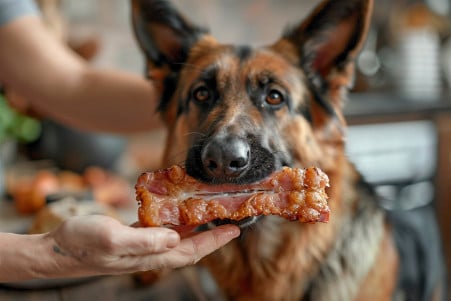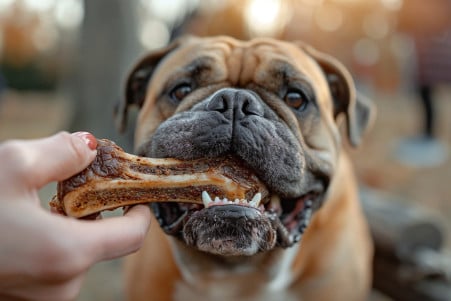Can Dogs Eat Chicken Bones? The Risks and Safety Precautions
22 April 2024 • Updated 22 April 2024

Although many dog parents have given their pups a chicken bone as a special treat, it's important to know the risks and safety precautions. Vets say that dogs should never be given chicken bones because they can splinter and cause cuts or blockages in the digestive system, which can be life-threatening. Even though dogs may be drawn to chicken bones, it's important to offer safer alternatives like dental chews or food-dispensing toys to satisfy their need to chew.
To fully cover this topic, we will look at research from a variety of disciplines including veterinary medicine, animal nutrition, and animal behavior. This will give a comprehensive view of the potential dangers of giving dogs chicken bones and will also help pet parents know how to keep their furry friends safe and healthy.
Can dogs eat chicken bones?
Dangers and Hazards of Chicken Bones for Dogs
Chicken bones, whether raw or cooked, can splinter and cause internal damage if a dog eats them. Heart + Paw explains that chicken bones are hazardous because they are hollow and can splinter into sharp pieces that can cut the throat or intestines. They can also cause choking and block the airway.
Cooked chicken bones are especially risky because they are brittle and can splinter, causing a choking hazard or even tearing the digestive tract. As Everett Vets points out, even if the bones are cooked and seem slightly more pliable, they can still be hard for small dogs to pass and may cause blockages.
Raw chicken bones can also be problematic. If the bones were part of uncooked chicken, they may be contaminated with bacteria like salmonella or E. coli, which can make dogs sick, according to MetLife Pet Insurance.
Symptoms that a dog may be having a problem due to eating chicken bones include vomiting, diarrhea, lethargy, difficulty breathing, and abdominal pain, according to several veterinary sources. Dogs should be taken to the vet immediately if they show these signs of distress after eating chicken bones, as internal damage or blockages may need to be treated by a vet.
Safe Alternatives to Chicken Bones for Dogs
Even though chicken bones are not safe for dogs, there are other options that can help dogs get the same benefits, like better dental health and mental stimulation. According to The Kind Pet, raw, uncooked bones from other animals, like beef, lamb, or turkey, can be safer for dogs to chew on if they are given to dogs with the right precautions and safety measures.
Recreational bones, like large femur bones, are made for chewing but not for consumption, according to Redbarn Pet Products. Non-edible chews, like dog toys, antlers, or carrots, can also give dogs the chewing satisfaction they crave without the risks of bones, according to DogTime.
Ground bone powder or dental chews can offer the same nutritional and dental benefits as bones, but in a safer, more controlled way, says the American Kennel Club. By offering these safer options, dog owners can make sure their dogs get the chewing satisfaction they need while avoiding the potential risks of chicken bones.
Chicken Bones and Puppies: Special Considerations
Puppies have different digestive systems and chewing habits than adult dogs, so there are some special things to keep in mind when it comes to chicken bones. As explained by Verm-X, cooked chicken bones should be off-limits for puppies because they are more likely to choke and suffer internal damage due to their small size and developing teeth.
On the other hand, raw chicken bones, like wings or necks, are more pliable and less likely to break into sharp pieces, so they can be safer for puppies to chew. In fact, Verm-X suggests that puppies be introduced to appropriate raw bones at a young age because it can help them develop mouth-eye coordination and good bone-chewing habits.
However, both FOTP and The Animal Keeper recommend that puppies be closely supervised and that pet parents consult with their vet before giving them any kind of bones, since their age and developmental stage need to be taken into account.
How to Perform First Aid on a Dog Choking on a Chicken Bone
If you find yourself in a situation where your dog is choking on a chicken bone, it’s important to act fast and administer the proper first aid to dislodge the blockage. According to AEC Memphis, signs that a dog is choking include coughing, difficulty breathing, pawing at the mouth, and a panicked or distressed expression.
The first aid measures you can take include trying to remove the object with your fingers, performing the Heimlich maneuver, or giving abdominal thrusts, according to Daily Paws. For small dogs, you can also try holding them upside down and shaking them gently or raising their hind legs to help dislodge the blockage, per First Aid for Pets.
If the first aid measures don’t work or your dog becomes unresponsive, stop breathing, or lose consciousness, get them to a vet immediately, as they may need professional medical attention, according to Jacksonville Community Pet Clinics. Acting quickly and using the right first aid measures can make all the difference in saving your dog’s life if they’re choking on a chicken bone.
Conclusion: Prioritizing Pet Safety and Well-being
Although it may be tempting to give your dog a chicken bone, the potential risks and dangers associated with chicken bones far outweigh any benefits. Veterinarians and animal experts advise against giving dogs chicken bones, whether they are cooked or raw, due to the risk of splinters, obstructions, and internal injuries. Instead, there are many safer alternatives, such as dental chews, durable toys, or supervised chewing on raw bones from other sources, that can provide dogs with the mental stimulation and dental benefits of chicken bones without the risks.
If a dog does accidentally ingest a chicken bone, it is crucial to monitor them closely for signs of distress and seek immediate veterinary care if any concerning symptoms arise. By prioritizing pet safety and following expert guidance, dog owners can ensure the well-being of their beloved companions and avoid potentially life-threatening situations.


